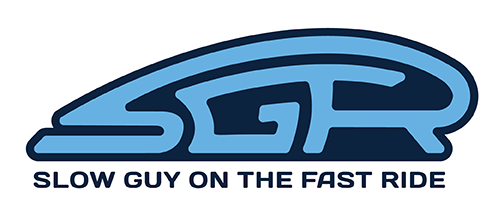A few weekends ago, Zack and I made the trek out to our first Gravel Worlds in Lincoln, Nebraska. With it just being my second year in the gravel space, I feel like I have a lot of events I need to experience at least once, so we swapped The Last Best Ride, hosted by my former teammate Jess Cerra, with Gravel Worlds, which had a 1000 Women of Gravel initiative this year (also rad).
Unsurprisingly, since Zack and I are both married, work together, and obviously travel to these events together, we spend a lot of time especially on dog walks and road trips, philosophizing. A big theme this year, which I’m pretty sure we heard on TV show Atlanta, that has really stuck is “grow roots where you live”. We travel around to these places all over the country for gravel events and have that “gravel family” on the road, but how do we grow roots in our own community? That “rising tide lifts all boats” concept and a heavy FoCo Fondo theme has been our answer.
A few months ago, I got a message on Instagram from a guy named Aaron who, unbeknownst to me, attended FoCo Fondo in 2021, loved it, became fans of me and Zack, and reached out when he saw GW on our schedule. He wanted to know if we (and our dog Harley) needed a place to stay. After a phone call and meeting him at the 2022 FoCo Fondo shakeout ride, I thought it’d work out fine and agreed.
Lincoln Roots
 We arrived a couple days before, and besides already being above-and-beyond hosts by letting our dog come hang with their dog, Quincy, it ended up being a stellar situation just from a host housing perspective. Our hosts insisted on feeding us, there were lots of sleep opportunities, the location was close to the course, etc.
We arrived a couple days before, and besides already being above-and-beyond hosts by letting our dog come hang with their dog, Quincy, it ended up being a stellar situation just from a host housing perspective. Our hosts insisted on feeding us, there were lots of sleep opportunities, the location was close to the course, etc.
Going back to that “grow roots where you live” concept…because I work in the cycling and event space, I usually think of that in terms of getting people on bikes, creating limit-pushing opportunities, subtly flipping historical scripts. Aaron and his wife, Andrea, literally grow roots where they live through crops and community involvement. Yep, Nebraska, crops, roots.
Andrea works as a University of Nebraska-Lincoln Assistant Professor in the Department of Agronomy and Horticulture, teaching a few undergrad/grad courses and research focused on diversified cropping systems, soil health, climate. She is also doing research on a perennial grain crop called Kernza® that has great potential to reduce environmental impacts from agriculture.
When we met her, she just got back from a student trip that is 95% men and undeniably white. She uses her outspoken personality to ask pointed questions and ensure all her students feel they belong in the space, even if underrepresented. She also just received a big-deal ASA Early Career Award.
Aaron works for the United States Department of Agriculture’s Research, Education, Economics mission area, working as a commodity statistician. He also grew up on a family ranch in Nebraska with a storied background with various conservation and grazing practices. His childhood sparked his love the plains wildlife and cattle, rural open sky prairie spaces, and the gravel roads connecting everything. Although gravel riding would come later for him, he is no stranger to the landscape the gravel community loves.
Outside of work, they do grassroots political organizing and will start working with refugee families from Afghanistan and Ukraine this fall. They also cook for a women’s shelter because “food is a celebration of agriculture and find great fulfillment in feeding friends and others in our community.” The intersection between their background, jobs, and community involvement is undeniably interesting with current trends, agriculture, and the climate crisis. Grow roots where you live.
Although Zack and I came for a bike race, staying with strangers, we left with friends and learned a lot about this heavily ag-focused state. Although our individual impact in our communities can feel small in the moment, I believe it really does add up, over reach, over time. It’s a way to leave your mark and make this world just a tiny bit better.


